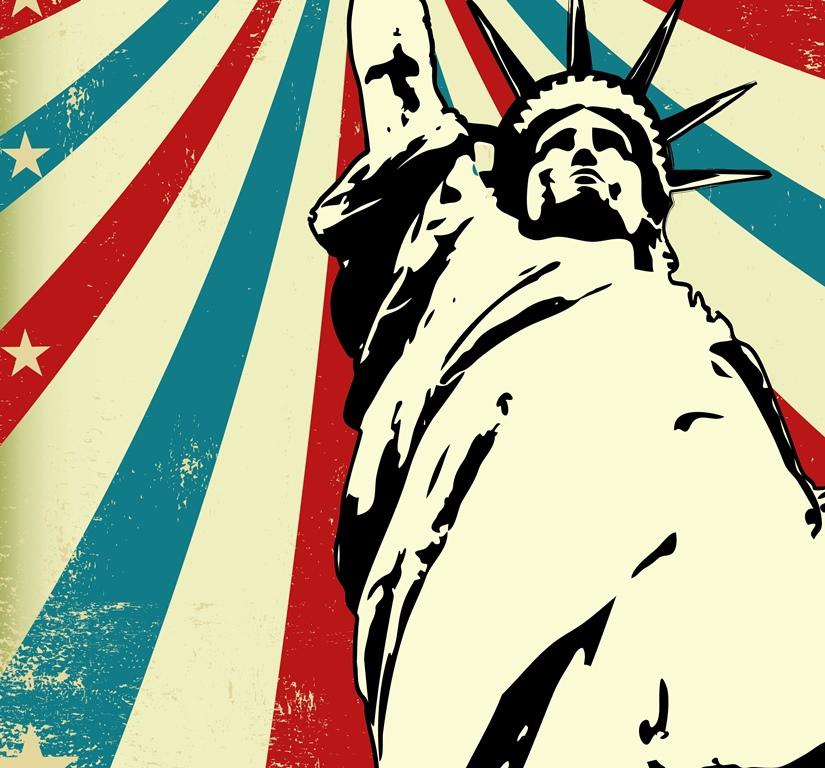In the context of a nascent 20th century, when the political landscape was rife with contention and societal upheaval, ‘Abdu’l-Bahá emerged as a beacon of hope and enlightenment. The eve of the 1912 presidential election in the United States bore witness to a profound exposition of ideals that transcended the mere act of voting; it signified an invitation to envision a noble America. This discourse serves to unravel the layers of meaning embedded in ‘Abdu’l-Bahá’s vision, addressing a common observation — the fascination with his thoughts on America — while delving into the deeper implications of his teachings.
‘Abdu’l-Bahá, the son of Bahá’u’lláh, the founder of the Bahá’í Faith, visited North America during a pivotal moment in history. He articulated a vision for the United States that was not predicated solely on material progress or governmental structures, but rather on spiritual awakening and moral revitalization. This vision resonated deeply with those grappling with the complexities of a nation poised at the crossroads of modernity.
One primary observation concerning ‘Abdu’l-Bahá’s teachings is the striking manner in which he interwove the notion of democracy with spiritual principles. He posited that true democracy does not merely entail the selection of leaders but must encompass the moral elevation of society as a whole. This perspective challenges the conventional understanding of democratic governance; it urges citizens to actively engage in the quest for justice and righteousness. Herein lies an invitation for individuals to reconsider their civic responsibilities as imbued with spiritual significance.
Moreover, ‘Abdu’l-Bahá did not shy away from the socio-economic upheavals of his time. He boldly addressed issues such as inequality, social justice, and the need for a harmonious society. He articulated that the prosperity of a nation hinges upon the development and welfare of all its constituents, particularly the marginalized. This holistic approach to governance and education illustrates a vision of America where societal advancement is achieved through unity, cooperation, and a shared commitment to the common good. Such observations reveal why ‘Abdu’l-Bahá’s ideas captivate the intellectual curiosity of many.
In speaking of unity, ‘Abdu’l-Bahá emphasized the need for an inclusive society, one that transcends barriers of race, religion, and class. His call for the establishment of global citizenship serves as a clarion call for America to transcend its historical divisions. He envisioned a society wherein diversity is celebrated as a vital component of national strength, positing that the richness of differing viewpoints fosters innovation and creativity. The fascination with this ideal reflects a yearning within the societal psyche for a reconciliatory discourse amidst a tumultuous backdrop of division.
‘Abdu’l-Bahá’s insights extended beyond prophetic admonitions; they illuminated paths toward a noble future. His emphasis on the power of education as a transformative agent is particularly noteworthy. He advocated for education that cultivates not just intellectual acumen but moral integrity. A revolution in educational paradigms, one that integrates spiritual education alongside academic training, forms the cornerstone of his vision. By prioritizing ethical awakening, ‘Abdu’l-Bahá delineated the contours of an enlightened citizenry capable of navigating the complexities of modern governance.
The intersection of morality and politics is another pivotal theme in ‘Abdu’l-Bahá’s discourse. He believed that the moral fiber of a nation could not be severed from its political landscape. His teachings implored leaders to embody principles of justice and equity, thus rendering the pursuit of noble governance a collective aspiration rather than a solitary endeavor. The notion that integrity and ethical conduct should underpin all political machinations is a profound observation that resonates with modern discourses surrounding political accountability.
Moreover, ‘Abdu’l-Bahá’s vision serves as a salient reminder of the responsibilities inherent in freedom. He maintained that liberty, when divorced from accountability, could devolve into chaos. The admonition to uphold moral convictions — even amidst the temptations of political expediency — offers much-needed introspection in an environment often characterized by moral ambiguity. Such insights elucidate the reasons behind the enduring fascination with ‘Abdu’l-Bahá’s messages.
In retrospect, the eve of the 1912 presidential election emerged not merely as a historical event; it embodied a pivotal moment for the intersection between spiritual enlightenment and societal progress. The compelling nature of ‘Abdu’l-Bahá’s vision continues to reverberate today, offering a blueprint for a more equitable and just society. The allure of his teachings lies not only in their historical context but also in their universal applicability and transformative potential.
Ultimately, ‘Abdu’l-Bahá’s oratory underscored a fundamental truth: that the vision of a noble America is not an abstract ideal but a tangible goal necessitating active participation from its citizenry. The depth of his insights beckons contemporary audiences to confront the realities of their own societal structures and to aspire toward a collective metamorphosis. In navigating the complexities of the present, the echoes of ‘Abdu’l-Bahá’s teachings serve as a guiding luminary, illuminating pathways to a more compassionate and just society.
